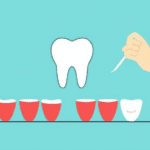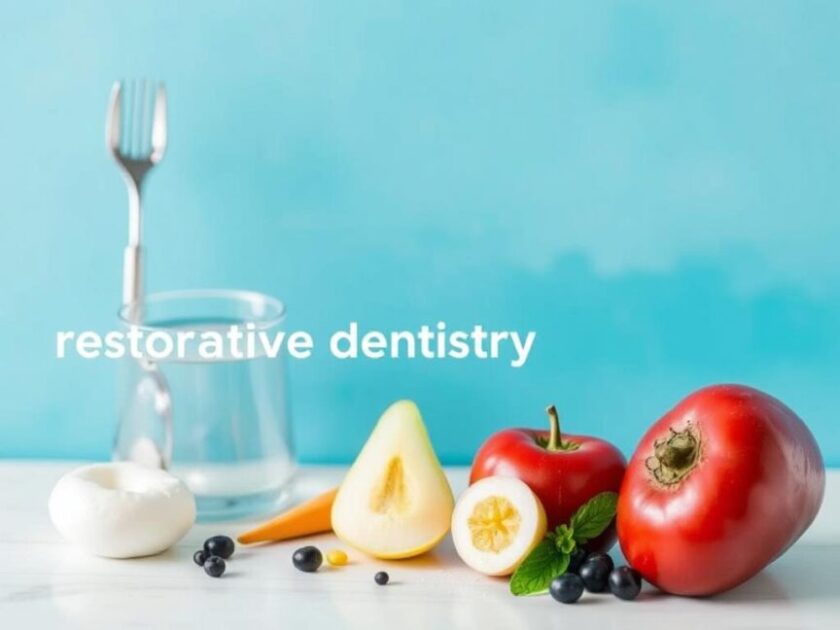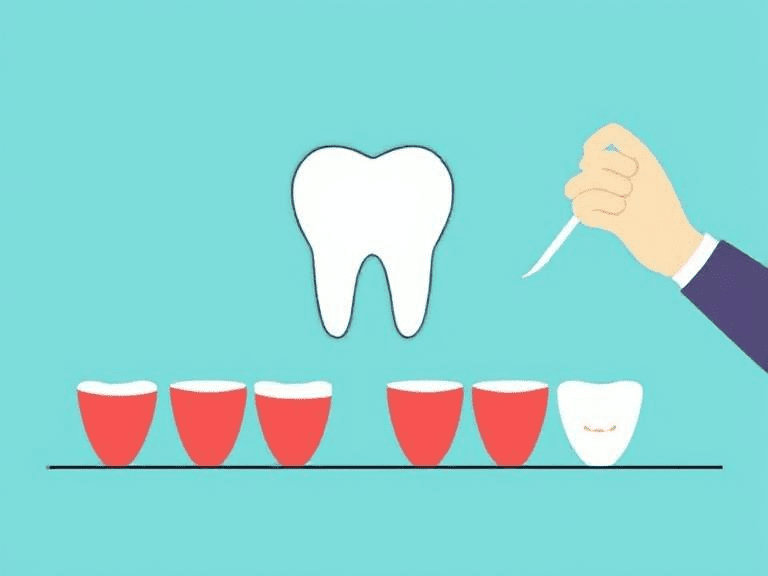restorative dentistry: Food taken into the system has a great influence on health in the mouth. Other than daily food, calcium, vitamin D, and phosphorus are some of the minerals that keep teeth and gums in good health. Vitamin D is essential in building strong dental and skeletal structures.
Nutrition is not only important for oral health but also for the outcome of dental treatments; this is just one among the many ways in which nutrition has an impact on general, restorative, and cosmetic dentistry. The relationship between nutrition and different areas of dentistry which is detailed below will help you through.
General Dentistry
- Prevention of Dental Problems and Cavities: Strong teeth are maintained with the help of calcium, phosphorus, and vitamin D. These vitamins are very important as they are required to harden the outer layer of teeth.
Gum Wellness: This goes hand in hand with the consumption of vitamins C and K. The former lowers the risk of gum disease by repairing and synthesizing collagen.
- Reducing the Risk of Oral Disorder:
Carbohydrates and Sugars: Excessive intake of these can result in tooth decay and plaque collection.
Hydration: Sufficient water intake helps healthy salivary flow, necessary for the lowering power of acids and the removal of bacteria and food particles.
- Overall Effect on Health:
This means general health supports oral health, which is supported by good eating. Looking out for what we are eating becomes even more important as many liver and blood-related problems can impact dental health.
Restorative Dentistry
-
Repair and Healing:
Wound Healing: Adequate nutritional intake accelerates the healing and recovery processes in restorative operations like crowns, implants, and fillings. Proteins, in addition to vitamins A and C and some trace elements like zinc, are extremely important in tissue healing and immunity.
Bone Health: Adequate calcium and vitamin D are essential for the placing of implants and bone health during these procedures.
-
The Success of Restorations in the Long Run:
Durability: A balanced diet is useful in maintaining dental health and the longevity of restorative procedures. A diet low in sweet or acidic foods, for example, helps prevent the materials used in restorations from decaying.
-
Avoiding Future Problems:
Maintenance: Healthy eating after restorative processes helps in preventing tooth decay and gum problems that may weaken previous treatments.
Useful Suggestions
- Balanced Diet: Have a high intake of whole grains, fruits, vegetables, meats, low-fat dairy products, and other nutrients.
- Limit Sugars: Between meals, avoid sugar-containing snacks that promote tooth decay and the formation of dental plaque.
- Hydrate: Drink lots of water to stimulate saliva production and overall health in the mouth.
- Nutritional supplements: Certain additional components may be required to be taken at times when they are not consumed in sufficient amounts through diet, for example, calcium or vitamin D.
Consequences of improper nutrition?
Nutritional deficiencies can have severe implications for restorative and general dentistry. The following are some ways that poor nutrition might affect dental procedures and oral health:
| General Dentistry | Restorative Dentistry |
| Increased cavity and decay risk | Weakened recovery and healing |
| Gum disease and oral infections | Decreased longevity of restorations |
| Bad breath | Alignment and functional issues |
Conclusion
Keeping everything in mind, a well-planned strategy that includes healthy eating, frequent dental checkups, and good oral hygiene, strengthens oral health to provide better results in dental procedures. Food and drinks rich in sugar and carbohydrates can cause severe oral infections and dental caries. Sugar-rich food contains the food that the germs that cause tooth decay feed on. Sugars and carbohydrates, on being consumed, are converted to acid by bacteria in the mouth. The acid thus produced can dissolve the tooth enamel, leading to decay.











